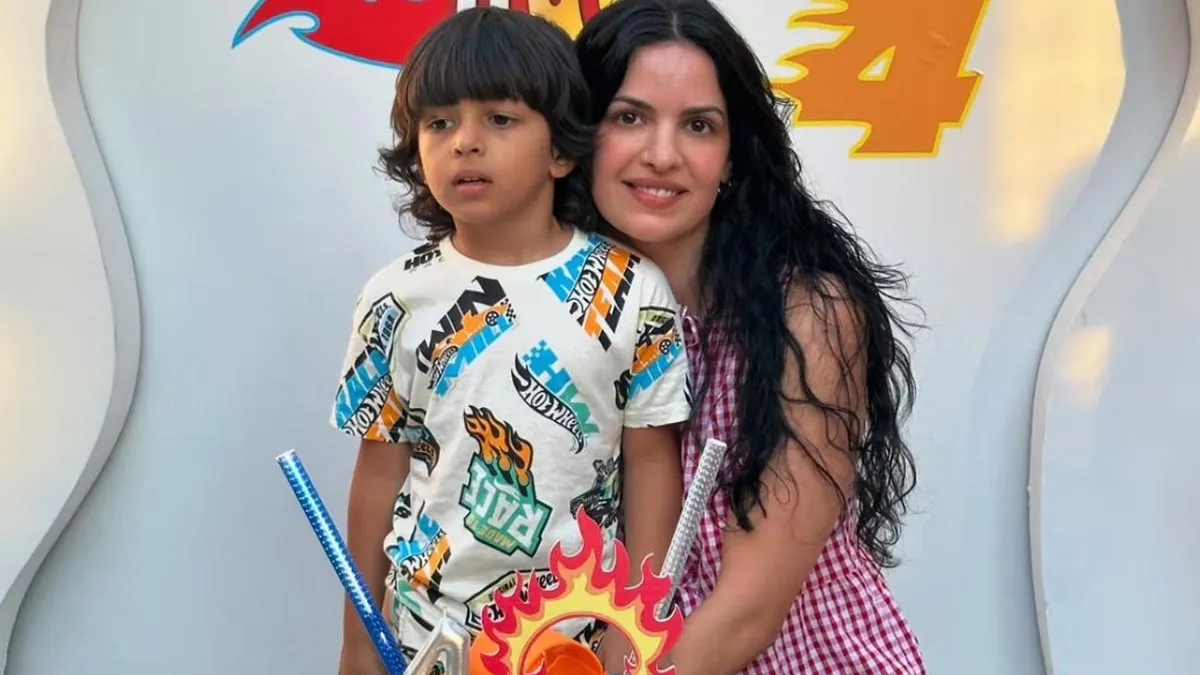
After her recent separation from cricketer Hardik Pandya, Serbian actress and model Natasa Stanković has shed light on her journey of co-parenting their son, Agastya. Despite their parting ways, Natasa and Hardik have chosen to prioritize Agastya's well-being, creating a stable environment where he feels loved and supported by both parents. Natasa’s reflections on co-parenting offer a glimpse into the challenges and rewards of shared parenting and its profound effects on a child’s mental and emotional development.
Table of Content:-
Focusing on Family Stability Amid Separation
In an interview, Natasa highlighted that although her relationship with Hardik has changed, her commitment to fostering a strong family bond remains. She noted that they both make efforts to maintain a healthy dynamic, keeping Agastya's needs front and centre. Natasa emphasized that their family unit remains intact because of their shared love for their son, showcasing that co-parenting is not just about dividing time but about collaborative support for the child.
For many children, parental separation can lead to anxiety, confusion, and even guilt. However, when parents work together constructively, it can foster a positive environment that minimizes emotional turmoil. According to Natasa, her approach is about creating this balanced space where Agastya feels his family supports him despite the separation.
View this post on Instagram
The Role of Co-Parenting in Child Mental Health
Co-parenting can have a lasting impact on a child’s mental health. Research indicates that children who grow up in co-parenting arrangements often feel a stronger sense of stability and emotional security. This is largely because co-parenting models positive behaviour, showing the child that despite differences, their parents are united in love and care for them. Studies also highlight that children with actively involved co-parents exhibit lower stress levels and fewer behavioural problems than those exposed to ongoing parental conflict.
Also Read: Sonam Kapoor Questions Letting Kids Fight Fevers Naturally – Here’s What Experts Say
The effects of parental separation can be mitigated when both parents make concerted efforts to avoid open conflict, maintain routines, and demonstrate emotional resilience. For Natasa and Hardik, co-parenting Agastya is a mutual commitment to prioritize his mental well-being, showing him that both parents are there for him.

Benefits of Cooperative Co-Parenting
Effective co-parenting can provide children with numerous mental health benefits. Firstly, it promotes a sense of safety and security by establishing consistency, allowing the child to build healthy relationships with both parents. When co-parents communicate openly and avoid involving the child in their conflicts, children are less likely to experience stress, anxiety, or a sense of divided loyalty.
Also Read: KL Rahul And Athiya Shetty Expecting Their First Child; All About Prenatal Screening Tests
Further, a strong co-parenting relationship supports the child’s emotional intelligence. By observing their parents navigating challenging situations with mutual respect, children learn important life skills such as empathy, compromise, and resilience. Natasa’s approach to co-parenting with Hardik reflects these principles, as she focuses on instilling values of love and togetherness, despite the differences between them.
View this post on Instagram
Tips for Successful Co-Parenting
Co-parenting can be a rewarding but challenging journey. Here are a few strategies that can help ensure its success:
- Maintain Open Communication: Good co-parenting relies on clear, respectful communication between parents. It is important to discuss matters relating to the child without bringing up past issues or personal grievances.
- Stay Flexible: Both parents should be willing to adjust schedules or routines when necessary. Flexibility fosters a cooperative spirit, allowing each parent to feel respected and valued.
- Set Boundaries and Agree on Rules: Parents should work together to establish common guidelines for essential areas like discipline, education, and healthcare. This not only provides stability for the child but also prevents confusion over conflicting expectations.
- Keep Private Matters Private: Shielding children from adult conflicts and private matters is crucial. Avoid negative comments about the other parent in front of the child and never use the child as a go-between for relaying messages.
- Focus on the Child’s Needs: Ultimately, the child’s well-being should remain the primary concern. Co-parents should continually assess their arrangements and make adjustments to ensure their child’s happiness and stability.
Avoiding Pitfalls in Co-Parenting
Co-parenting is not without its challenges, especially when emotions run high. Common pitfalls include using the child as leverage in disputes, making critical comments about the other parent in front of the child, and trying to “win” the child’s favour by bending rules or buying excessive gifts. Each of these can create unnecessary stress and confusion for the child. Instead, the emphasis should remain on cooperation and support.
Bottomline
For Natasa, co-parenting has been an exercise in patience, understanding, and focusing on what truly matters. Despite her separation from Hardik, she has shown that it’s possible to nurture a loving family environment where her son feels cherished and secure. Co-parenting, while complex, has the potential to positively shape children’s emotional health, helping them develop into resilient and balanced individuals.
Also watch this video
How we keep this article up to date:
We work with experts and keep a close eye on the latest in health and wellness. Whenever there is a new research or helpful information, we update our articles with accurate and useful advice.
Current Version